It is me but it could have been you!
Impressions from an afternoon in Roumieh Prison
هذا أنا ولكن كان من الممكن أن تكون أنت
مشاهدات من زيارة لسجن رومية
The feeling of unease starts early, as the small road winds from the main highway through an industrial area and one starts to catch glimpses of the infamous Roumieh prison complex. Ironically, the last few turns of the road are in a very green forested area where nothing else can be seen. But rather than being soothed by the greenery, one is on alert, on the lookout, until the first checkpoint suddenly appears after a sharp bend.
We are coming here to see “Johar..Up in the air”, a play performed by the inmates of Roumieh prison and directed by Zeina Daccache, the founder of Catharsis. Catharsis is the first drama therapy center in Lebanon and the Arab Region, and is a non-profit organization that was founded in 2007. You can click the link to learn more on the amazing work they do, but basically they offer therapeutic activities such as the play we have come here to see in places like substance abuse treatment centers, mental health facilities, and obviously, prisons…But as I discovered, their dedicated work goes much beyond that to working with judges and parliamentarians to campaign for better laws and much-needed policy reform.
High grey walls, metal barricades, coils and coils and coils of aggressive barbed wire everywhere. Internal Security Forces (ISF) everywhere. And among them a pleasant young woman whose red shirt stands out among the surroundings, as she politely looks up our names on her list of pre-approved, pre-screened attendees.
The various members of the ISF you interact with along the long process of going in are also very polite. But there is something a little surreal about all this politeness, about this assumed air of lightheartedness that contradicts everything you are seeing and feeling, and the images in your head. You wonder what the ISF members are thinking…are they looking at us, the attendees from relatively upper middle class or intellectual circles, and thinking to themselves: “Why are these people here?” Or maybe they are thinking: “Here come the silly rich bourgeoisie coming to be entertained and to pretend they care about the inmates of this prison, before they leave to prepare for their dinner parties at night. Do they really think they can do anything to change the misery that exists behind these walls?”
In this overall experience, the process of getting in and out of the prison is almost as overwhelming and heavy as watching the inmates and the performance itself. Still more coils of violent barbed wire, even where they don’t need to be. The sounds of big heavy black metal doors swinging and shutting closed, locks sliding, as we are admitted in batches. One door opens and closes behind us, while we wait for the next one to open. We are guided along the path, politely but strictly, everyone very alert. Scanners and body searches. There is an ominous barbed wire tunnel that snakes its way up right next to the path we are being taken on. I imagine it is the path that visitors to the inmates have to take on regular days, when there is no performance and polite ISF members and shuttle buses, when the families have to walk up this long path inside this barbed wire tunnel in any weather conditions.
We exchange light small talk with our fellow audience members along this process in an attempt to ease the heaviness that is around us. Finally we reach the courtyard and the iconic curved building that houses the cells of the convicted inmates, the one we have seen in many news reports. I heard, but did not confirm, that this building was designed for 1000 inmates but houses 7000. Regardless of the accuracy of the numbers, there is no doubt in anyone’s mind about the conditions inside. On one side of the yard there is a bright blue tiled fountain sort-of- thing, maybe with dolphin sculptures. If it was meant as a fountain, it is certainly not working. Whatever it is, this broken attempt at some color really only serves to accentuate greys and blacks.
From every cell window, there are about five or six dangling ropes at the end of which the inmates have hung towels, t-shirts, and underwear to dry in the sun. Their colors stand out against the greyness. I imagine these various items of clothing as cries for help, like a forgotten stranded person on an island waves a red cloth at a passing ship in the hope of being noticed, remembered. Entire lives here are forgotten.
We finally make it into a small room off the yard that will be used as the performance space. We are guided to bleachers on opposing ends where we are instructed to sit with our back between the legs of the person behind us, not against the actual step. We are not here to be comfortable or spread out, and I don’t think the space takes more than 80 or so cramped spectators.
The performance, which lasts for two hours, consists of a series of sketches that are sometimes symbolic choreographed dances, sometimes songs, other times inmates telling their stories. In total, 38 inmates perform and the majority of them are either on death row, have life sentences, or are inmates with mental illnesses who have been thrown in with the rest of the inmates because the Lebanese State has still not come around to providing special quarters with appropriate care for those who need it, even though the law technically stipulates it. This is the third play that Catharsis has produced with inmates (the first was also in Roumieh and the second was in the women’s prison in Baabda) and the focus this time is on those unlucky enough to have committed a crime because of a mental illness and thrown in jail “until they have been cured!!” Since there is no specialised care and no dedicated quarters except one small unequipped building, most of them live here forever. More wasted, forgotten lives.
It is hard here to describe the various technicalities we have learned during the performance, on which these people’s lives hang, indefinitely. It is even harder to describe the intense emotions they manage to convey to us- feelings of desperation, of lost hope, of wasted lives, of longing to be able to simply walk out, of being able to hold your mother, of being able to wait for something, or having any purpose whatsoever… So instead of describing all that, which would require a much longer post, I will just describe the two main takeaways I got from it: the randomness of life, and the randomness of law.
Many times I caught myself being distracted a little bit from the actual performance and focusing on the human beings performing three meters away from me. There is nothing stereotypical about the looks of most of them. These are guys who look exactly like most of the guys in the audience. They just happened to be somewhere, experience something, be in certain circumstances that led to them committing some crime. They are not born criminals. I can bet that for the majority, some random whirlwind twist of life happened and suddenly they found themselves here. It must have felt exactly like they were hit by crashing waves of events; they thrashed about randomly, and suddenly they were in this cell in this concrete fortress. It could happen to anyone. It is really not as far away from any of us as we might like to imagine. A couple of times I caught the eye of one of the performers, a pleasant looking guy in his 20s. He held my gaze for a few seconds each time, in which I felt we were two sides of a random coin flip. “It is me but it could have been you…it is you but it could have been me…after this is over I am walking out of here…after this is over I am going back to my cell!” It is really that random. It is really that circumstantial. Randomness of life.
The second takeaway is the randomness of law. One of the inmates committed involuntary manslaughter in a period when the law stipulated the death penalty even for involuntary killing. A year later, the law changed, and involuntary manslaughter became punishable by a certain number of years in jail. But he had already received the death sentence. A year made the difference between death and eventual freedom. For mental illness patients who commit crimes, the law requires that they be held in special psychiatry units in a prison. Until cured. But there are no psychiatry units in any Lebanese prison except for a small building in Roumieh prison that is not equipped, and so they are dumped with other prisoners until cured. In Roumieh prison until cured! Then there are the guys with death or life sentences where the law has been changed to allow them a reduction in sentence, but with nearly impossible conditions: either they get a pardon from the victim’s family (almost impossible in our vindictive culture), or pay an indemnity that is impossible to afford for a prisoner from a poor family and languishing in prison with no income. The randomness of law and capitalism! You have money, you can pay and get a reduction. You don’t have money, you rot.
As much as I would like to, I am not here trying to make an argument about how the vast majority of criminals commit crimes simply because they were unlucky to be in certain circumstances. I know a lot of people would push back on that, and say those who offend must get punished, or society will be lawless. I happen to think that is a very easy convenient black-or-white way of seeing things that is inhuman. But again I am not making that argument. All that I’m trying to say here is that things are so random- whether in terms of the life circumstances that led to the crime or in the law itself and how a small change in wording means the difference between life and death- that these people deserve better. Maybe society agreed to put them in jail. But society cannot agree to leave them in jail in these conditions. They cannot be left to rot away like that. Jail is about rehabilitation not about daily psychological torture.
How can you help?
Catharsis is one of the leading NGOs not only working on helping the inmates through drama therapy, but also working to raise awareness of the public and to update the laws. This is a long draining process but already they have great successes in their campaigns including changes in the law. In 2009, the buzz created by the first play in Roumieh “12 Angry Men” and the subsequent documentary screenings contributed directly to the implementation of the Early Release Law for Good Behaviour (law 463) which had not been implemented since its approval in 2002. This sustained effort to conduct studies, lobby decision makers, and put up performances like this one require a lot of funds. I come from the development world and know how difficult fundraising is, even for such noble causes, but we can leave that difficult work on those big objectives for Catharsis to work on with their donor organizations. I also know that it is very difficult to raise funds for the small things that you cannot include in a fund-raising proposal- things that would make the miserable lives of those inmates a little tiny bit more bearable. Some of them are so poor that they cannot even afford to buy a pack of cigarettes, basic medicine, Kleenex, or even underwear. It is in those small things that we can help. And so I am calling for anyone interested in making donations of any size to please get in touch with me in any way you can including on my email, so we arrange to collect this money and make a donation to Catharsis. Of course you can give the donations directly yourselves but I am just helping raise awareness of the needs, and offering to facilitate the process. Please consider helping. It really could be anyone up there, and it really is a very very miserable existence, no matter what those guys have done.
Photo Credits: Patrick Baz/ Catharsis-LCDT
Click here to add your own text
Click here to add your own text

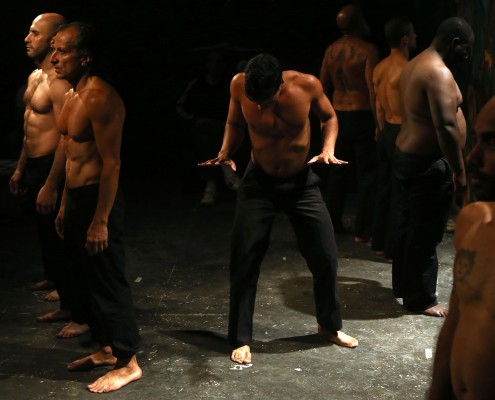
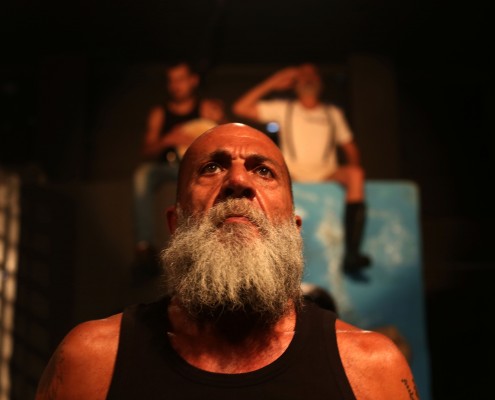
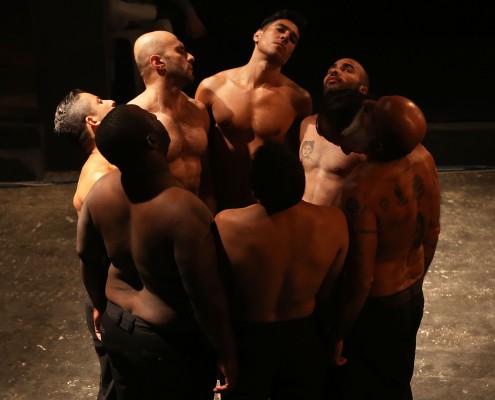
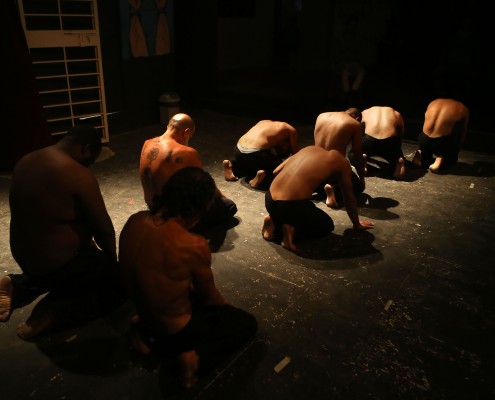
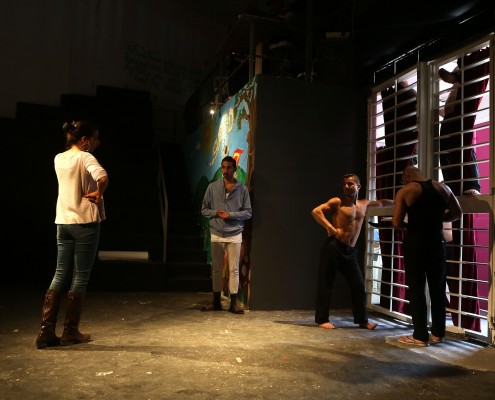
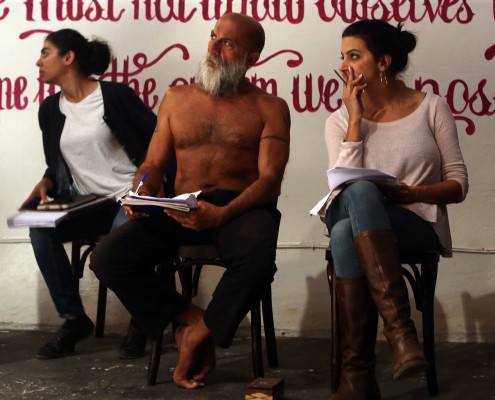
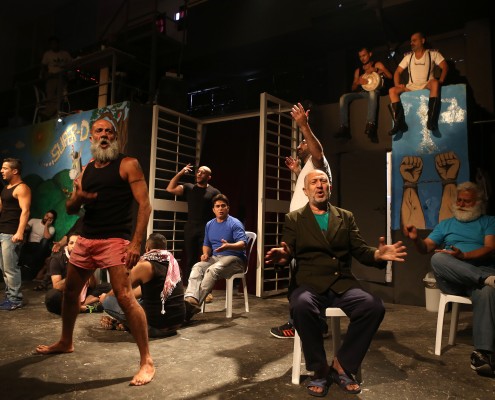
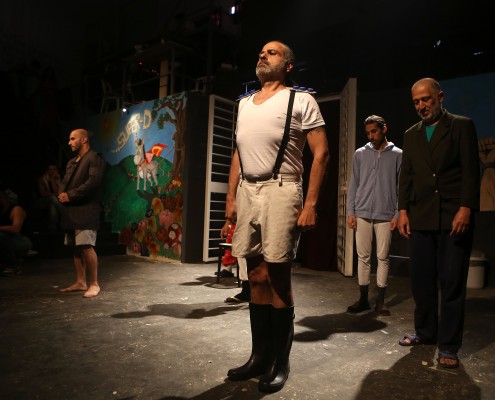
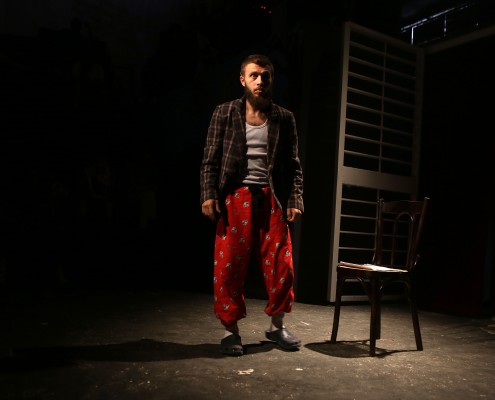
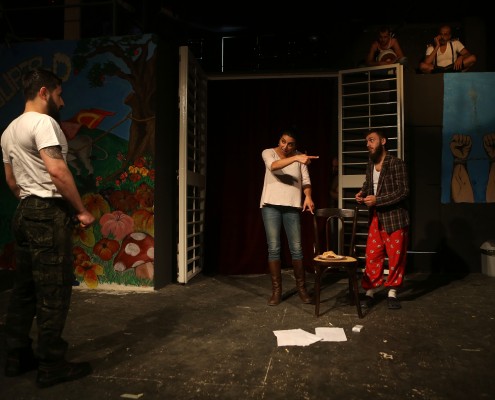


I would take this a step further to say that life – with all its events – is already preset, and we are only experiencing it as it was written with no real potential to deviate off-course. Since every action is not random but rather caused by some underlying force which is in turn caused by some other force, then life becomes a manifestation of the domino effect. One can’t push the first domino and expect the others to fall in a way contrary to how they were set.
Thank you for the comment. This is of course a philosophical/ spiritual debate and there are various opinions about how much freedom versus choice we have in life, and also about the purpose of life in the first place regardless of how much choice we have or not (if we don’t have any choice then what is the purpose of our life, and if we do have a choice why are we being tested in the first place! ) Regardless, I think I am in agreement with the general idea you are expressing as relates to this particular case: I really believe most of those convicted and in jail did not have as much choice in their crimes as some would thing, if we zoom out the perspective to include their overall situation and circumstances. But if take your perspective to the end, do you then think they should not in fact be punished at all, if you say there had zero choice in what they did?
) Regardless, I think I am in agreement with the general idea you are expressing as relates to this particular case: I really believe most of those convicted and in jail did not have as much choice in their crimes as some would thing, if we zoom out the perspective to include their overall situation and circumstances. But if take your perspective to the end, do you then think they should not in fact be punished at all, if you say there had zero choice in what they did?
Thank you for conveying the picture so clearly. I enjoyed every word . Knowing that I am not usually a big reader , I would suggest to shorten the content a bit, to encourage people like me to read your interesting articles more frequently .
Happy you enjoyed! And thanks for the suggestion. I agree, will try to be more concise.
Ouf! Zee, that wasn’t easy reading… I mean that, of course, in the emotional sense. I often wonder how fragile life can be; and if you go back and analyze things, go way back to the roots, we would understand what leads people to behave in certain ways that are judged inappropriate by society. What if circumstances had been different, maybe only slightly different…
Exactly…that’s the thing, the slight difference. Sometimes just a little difference would have led to a totally different outcome. Just slightly more luck, or slightly more hope, or slightly more money…and the whole outcome could have been different!
your observation is true. Life is so random.
*Catharsis
The description is so real and this reality is so scary!! Unfortunately it’s a sad reality in this part of the world.. all the respect for Catharis work
Thanks for reading 😉 I’m glad I appear to have managed to conveyed some of that horrible reality.